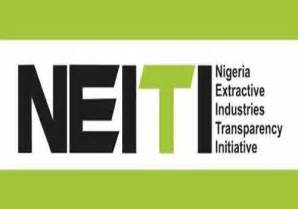Stakeholders at a roundtable on resolving the outstanding remedial issues in the Nigeria Extractive Industries Transparency Initiative (NEITI) oil and gas sector audit reports have called for the adoption of new strategies to ensure implementation of remediation.
Speaking at the roundtable organised by the Nigeria Natural Resource Charter (NNRC) in Lagos, Dr Oby Ezekwesili said NEITI should begin a widely publicised and consistent ranking of covered entities in relation to compliance with remediation.
She said “Similar to the World Bank ease of doing business ranking, ranking of compliance with NEITI process will help change things and ensure improved implementation of remediation.”
NEITI has so far conducted seven circles of audits over a 16years period covering 1999 to 2015. However, implementation of remedial issues has been a major challenge, resulting to the same issues recurring yearly.
Also speaking at the event, Mr Austin Olorunsola, former Director, Department of Petroleum Resources (DPR) advised NEITI to concentrate more on making projections rather than playing catch up.
“NEITI should move away from just reporting what has happened to what could happen if things are not fixed now or if these outstanding payments are not remitted now,” Olorunsola said.
Rather than play catch up with what has happened, he said “We can relate it in terms of how many hospitals, schools, or roads that government could lose due to these losses,” he explianed.
Olorunsola stressed that such projections should be able to point out the global, national and micro picture of the effect of the losses. This strategy he said, is capable of making all stakeholders become more interested in ensuring that remediation happens.
For her part, Nigeria’s representative on the global Extractive Industries Transparency Initiative (EITI) board, Faith Nwadishi, said the task of enforcing remediation is the responsibility of the National Stakeholders Working Group (NSWG) otherwise known as the NEITI Board.
The NSWG is an independent board, made up of members drawn from government, companies, civil society, labour, academia among others. It is currently being headed by the Minister of Solid Minerals Development, Dr Kayode Fayemi.
According to Nwadishi, the NSWG has the President’s delegated power to ensure remediation of NEITI audits. “They are the enforcing organ, they have the power to summon any Minister, or chief executive of covered companies with respect to remediation,” Nwadishi explained.
Speaking further she harped on the need for a review of the NEITI Act to capture the updated EITI standard. She noted that while the EITI now has an updated 2016 Standard, the NEITI Act dates back to 2007.
Mr Odein Ajumogobia, Chairman, Experts Advisory Panel, of the NNRC, while giving the opening remarks at the event had earlier mentioned the need for a review of the NEITI Act, stressing that remediation should be included in the Act.
This he noted will ensure that all agencies responsible for implementing corrective measures will do what is right as well as empower the National Assembly in enforcing the recommendations of the Act.






























